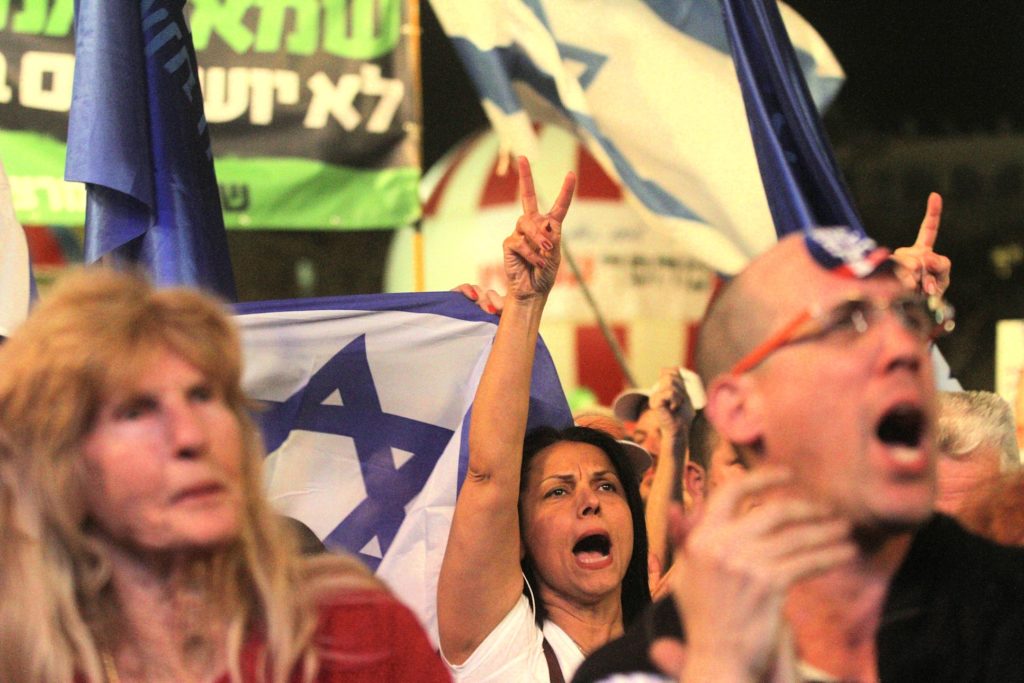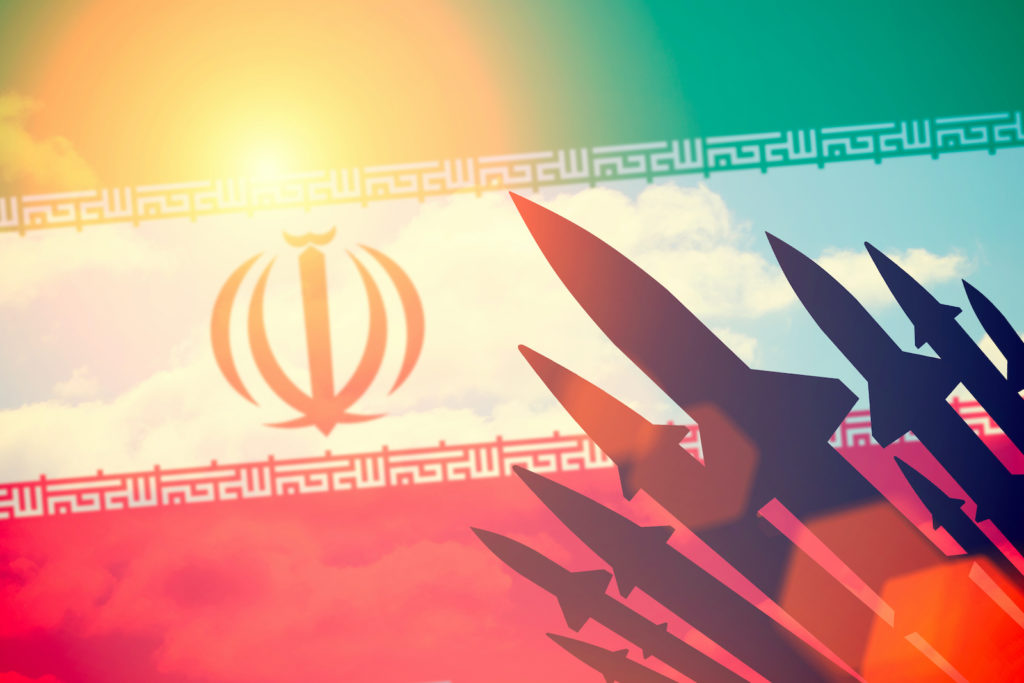UPDATES
Israel Election Update
Mar 13, 2015

Update from AIJAC
March 13, 2015
Number 02/03 #15
Today’s Update focuses on some new analysis of the state of the Israeli election campaign, now in its final week. The polls have been very varied (an excellent compilation of all significant election polls comes from “Jeremy’s Knesset Insider” website) and show that the competition between the two main parties remains close – though it is worth noting that the larger balance of forces between the various parties in the centre right-religious and centre left-Arab blocs is at least as important as the specific votes for the main Likud and Zionist Camp parties.
We begin with a good analysis from Israeli journalist and blogger Shmuel Rosner of the overall way things are looking. Rosner begins with an anecdote about the current status of the once powerful “princes” from the right-leaning revisionist camp in Israel, who became central to Israeli politics after the Labor establishment lost its monopoly on power in 1977. Now these “princes” – including both Netanyahu and important rival Tzipi Livni – have moved in varied directions, he notes. He then goes on to explain that polls show both major parties appear “stuck” with neither taking off in the way they had hoped, and the consequences for attempts to build the next coalition. For his whole analysis, with many important insights, CLICK HERE. More on how many of the controversies and divisions in the current election actually involve disputes between former Likud figures from Seth Mandel. Some more good points from Rosner on recent election developments are here.
Next up is Israeli political reporter Haviv Rettig Gur, who explains that the close race likely means that President Reuven Rivlin could play a key role in picking the next Prime Minister. Gur notes that the Israeli electoral process actually involves three stages – “election for parliament, presidential selection of the prime minister, and coalition negotiations to form a government with a parliamentary majority” and a close election would mean that the second stage will be critical. He then goes on to discuss the realistic likelihood that Rivlin could force the establishment of a national unity government even in the face of the likely opposition of both current PM Binyamin Netanyahu and his main rival, Labor’s Isaac Herzog. For the rest of Gur’s well-informed argument, CLICK HERE.
Finally, veteran Israeli journalist Evelyn Gordon uses some newly-released statistics to take on the widely believed myth that Netanyahu has been a “hardline” PM who greatly expanded settlement growth, She shows that during his two recent terms in office, both housing starts and completions in settlements are down substantially compared to his predecessors Ariel Sharon and Ehud Olmert – and that last year they fell more than 50%, yet no one gave the Israeli Government any credit for this huge fall. She goes on to point out that growth has overwhelmingly been in settlement blocs that Israel will keep in any peace deal, and that mistakes about these settlement facts have led to bad policies, especially in Washington, regarding the peace process. For all the important details, CLICK HERE.
Readers may also be interested in:
- A good piece on the splash being made in the Israeli election campaign by the new United Arab List, led by Ayman Odeh, which has sucessfully consolidated three smaller predominantly Arab parties from previous elections.
- Isi Leibler writes about why he sees this election as particularly important. Earlier, he had a piece expressing his view of Netanyahu’s US Congress speech on Iran last week.
- Some examples from the many stories and comments now appearing at AIJAC’s daily “Fresh AIR” blog:
- Ahron Shapiro looks at the surprising choice by Australia’s public broadcaster, the ABC to appoint as its new Middle East correspondent – Sophie McNeill, a journalist whom the ABC itself once described as “a political activist and social campaigner”, and one who has participated in public events to promote pro-Palestinian causes.
- Glen Falkenstein offers an eyewitness account of an effort by BDS students and at least one academic to disrupt a lecture by visiting British military expert Col. Richard Kemp at the University of Sydney yesterday.
- Sharyn Mittelman puts this event into the context of a number of controversial recent international actions by pro-BDS activists at universities – many of which seem to be blatantly antisemitic.
- Allon Lee on the latest revelations about managerial interference at the Qatari network Al Jazeera, reported by Mohammed Fahmy , an Al Jazeera journalist who was jailed in Egypt along with Australia’s Peter Greste.
- Sharyn Mittelman on the real causes of the lack of rebuilding in Gaza, in a piece published in the Melbourne newspaper, the Herald Sun.
- Video of a recent lecture in Australia by visiting British author and columnist Melanie Phillips, speaking about the overall threat from radical Islamism.
The 2015 Israeli election: Stuck in an elevator
Jewish Journal
Two weeks before Election Day, a somewhat strange group of Israelis gathered to celebrate in a rented hall at Tel Aviv’s Eretz Israel Museum. In attendance were scholars, advertising professionals, journalists and publishing industry editors. And politicians, many politicians. Former, future and aspiring politicians from both the right and the left.
President Reuven Rivlin, Gideon Saar and former minister Moshe Arens of the Likud Party; Tzipi Livni of the Zionist Camp; Moshe Kahlon of the newly formed Kulanu Party; outgoing Minister Yair Shamir of the Israel Beiteinu Party; MKs Shelly Yachimovich and Nachman Shai of the Labor Party; Yossi Beilin, former head of the leftist Meretz Party; Likud MK Yariv Levin; the list goes forever.
They were all there to celebrate the publication of a new book based on a doctoral thesis by Gil Samsonov. The book tells a story witnessed first-hand by Samsonov, who has played the roles of spokesman for former Prime Minister Yitzhak Shamir and adviser to Arens and Prime Minister Benjamin Netanyahu, about a particular generation of Israel’s founders and their offspring.
The founders described in the book are the members of the two right-wing underground organizations that preceded the State of Israel - Irgun and Lehi - and their supporters. These two groups rebelled against the cautious policies of the primary underground organization, Haganah, and against the dominance of the political establishment that governed pre-Israel Palestine’s Jewish community - which later morphed to become Israel’s Labor Party.
The revisionists opposition in the days of the British mandate in Palestine included both fighters and intellectuals. For many years thereafter, these revisionists had to contend with a hostile social-democratic government. They were discriminated against, singled out and mocked. History books did not recognize their contribution to the establishment of Israel. In official ceremonies, they were ignored. Their intellectuals were not awarded prizes. Streets were not named for their heroes. It is impossible to understand today’s Netanyahu and Menachem Begin, Dan Meridor and Livni, Ehud Olmert and Rivlin, without knowing this history of repression, rebellion and eventual triumph. The sons and daughters of a haunted generation of objectionists eventually rose to validate their parents. So when, in 1977, Israel finally changed course and for the first time elected a government not headed by Labor Party leaders, this second generation sprang to power and has dominated Israel’s political life ever since.
For more than 30 years, the Princes - the title of Samsonov’s book - have made up Israel’s political elite. Yet they often seem to still be rebelling against the elite who once ruled the country. About four weeks ago - a lifetime in an Israeli election period - Netanyahu ignited a storm by trying to replace the committee that would elect this year’s recipient of the Israel Prize for Literature. It was just one of many storms Netanyahu tends to ignite, always with a similar goal: to erode the influence of the left - the old boys club - where it still has force, such as in the universities and the media. The prize - the highest honor Israel can bestow on its exceptional scholars - is handled by a group of leftist friends, the prime minister explained. Many of them, he believes, do not support Zionism. Some of them, he pointed out, actively call upon Israeli youngsters to refuse to serve in the military.
Netanyahu is a prince who has remained true to his origins, while other princes and princesses gradually have inched away from the rightist Likud Party. In fact, the 2015 election marked another precedent, when princess Livni decided to run with Labor, taking the side of revisionisms arch enemy. Samsonov, onstage with Livni at the book launch a week ago, argued that she has changed her views. Livni countered that her former party is the one that has changed, not her.
It was an evening of nostalgia, and Livni told a wonderful story onstage about her mother, Sarah (Rosenberg) Livni. Little Sarah was a legendary member of the underground movement for which a widely known song of praise was penned. She escaped from the Brits by injecting a dose of hot milk into her own body to raise its temperature, and consequently got herself transferred from a jail to a hospital, from which she was able to escape.
Like most other members of the revisionist underground, Sarah was not one to spoil her children. She was as tough as nails, and as principled as anyone could be. One day, when Tzipi was a child, her mother refused to pay a neighbor to rescue her daughter from a stuck elevator. The crying Tzipi, inside the elevator, could hear her mother walk away, explaining to the neighbor that she would not cave to exaggerated demands under pressure. Not even to help her own frightened child escape an elevator.
Less than a week before Election Day 2015, Livni’s elevator seems as stuck today as it was five decades ago. Her decision to join forces with Labor leader Yitzhak Herzog was a defining moment in the 2015 campaign - the moment that made Herzog a viable candidate for the prime minister’s job and put his Zionist Union Party on par with Likud. If the polls are to be believed, each of these two parties is expected to win between 22 and 27 seats in the next Knesset, making them the two main parties, but still leaving them in need of many partners to form a ruling coalition. In fact, the elevator of both these parties got stuck long ago. Herzog’s (and Livni’s) Zionist Camp surged in the polls after the merge and then leveled off. Netanyahu’s Likud Party also ran a long campaign, at the end of which it finds itself with basically the same number of votes and seats it expected when the campaign first launched.
Netanyahu is responsible for sending Israel into this premature round of elections. When he made the move just three months ago - which now seems an eternity ago - he had a reason: Coalition partners such as Yesh Atid’s Yair Lapid had made it difficult, if not impossible, for him to govern effectively. But there is room for suspicion that Netanyahu also had a hidden motive: He wanted to go to the polls before a tide of public opinion turned against him, while his prospects of getting re-elected remain relatively high.
Which is not to say that, for Netanyahu, being stuck is necessarily bad news. If all parties are stuck with the numbers they get in the polls, if no party is able to break the current impasse, if no big surprise is registered on Election Day - Netanyahu will probably keep his job.
Yet this is still far from a done deal. Many voters feel Israel needs a new direction. Many voters, including Likud supporters, feel Netanyahu has been in office for too long. Most Israelis are telling the pollsters they do not want Netanyahu as prime minister. The mood on the left is one of possibility; the mood on the right is one of dread.
And yet, the numbers dont really add up for Netanyahu’s competitors. For them to form a coalition would require an electoral miracle, and then a miracle of consensus-building among parties and factions that won’t easily mix. Can centrist, anti-Charedi Lapid sit in a coalition with the Charedi parties? Theres no path for Herzog that does not include both. Can ultra-nationalist Lieberman sit with the leftist Meretz? Both parties say no, yet Herzog probably needs both to unseat Netanyahu. Would Kahlon move far enough away from his Likud routes to enter into a coalition that relies on an Arab party that includes communists, Arab nationalists and raging provocateurs? If he does, it would come as a great surprise, yet Herzog would need this to happen.
Netanyahu, on the other hand, easily can rely on a coalition. It would be one that is disturbing on many levels, but politically speaking, not difficult to envision: the Likud Party at its center, Zionist-Orthodox Habayit Hayehudi and Yachad to its right and far right - two Charedi parties that would finally get their revenge for 2 1/2 years in the opposition. And to seal the deal: Kahlon, Lieberman or both. That is - according to current polls - more than 60 and close to possibly 70 seats - a relatively coherent coalition half of Israel could support and the other half would hate. Truly hate.
Elections provide the public with an opportunity to surprise itself. The Israeli voter has a long history of such surprises. Israels parties have a long history of such surprises. The current numbers may seem solid for Netanyahu, but he is experienced enough to be concerned and for good reason: The public is tired of him, and even more so, the political system is tired of him. There are many people in the opposition who want to get rid of the long shadow of the three-time prime minister. And there are many people inside Netanyahu’s camp who want to get rid of his shadow. Some believe Netanyahu is doing damage to Israel. Others believe Netanyahu is becoming a burden rather than an asset for Israel’s right-wing bloc. For some, wanting to replace him is simply a self-serving goal. And for yet another group, it is a matter of personal dislike. Netanyahu has had a way of rubbing even his supporters the wrong way.
So the camp of those who dislike Netanyahu is both large and varied. The question is whether it will grow large enough to become a camp of anything-but. That is, will there be a large enough camp ready to rally around the single cause - not much more than that - of sending Netanyahu home?
Few Israelis feel the alternative proposed by the opposition is exciting or reassuring. Labor leader Herzog is an impressive and shrewd politician. But he is hardly, at this stage, a figure of national stature. He is not the Yitzhak Rabin who challenged Prime Minister Yitzhak Shamir in 1992. He is not the Menachem Begin who challenged Labor leaders for several dozen years, from Israels establishment to the 1977 day of victory. So Herzog, while a possible beneficiary, would not in himself be the reason for Netanyahu’s demise. No, Herzog, at this stage, is merely the man who happened to be in the right place when the elections were called and when the mood of the public showed signs of desire for change.
Nor would Netanyahu’s policies be the reason for his demise - if the miracle occurs next week. In fact, the policies proposed by many of Netanyahu’s opponents differ primarily in style from Netanyahu’s. The Labor Party promises a renewed effort to revamp the peace process, but most Israelis don’t believe this will amount to much. The Labor Party promises to lower the cost of living, but so does Netanyahu. The Labor Party vows to oppose a nuclear Iran by way of cooperating with the Obama administration rather than by confronting it but its path for success on this front is, put gently, not quite clear. The Labor Party promises to solve the housing crisis but it is not even clear there is a crisis, and if there is, it is not clear that it is solvable, and if it is, there is no reason Labor is more capable than Netanyahu of resolving the crisis.
There is an obvious solution that Israel has used in past instances of stuck political elevators: a unity government. It worked, for a while, for Shamir and Shimon Peres. It worked for Ariel Sharon and Benjamin Ben-Eliezer. It worked for a while for Netanyahu and Ehud Barak.
There are two formats for such governments - with and without rotation at the top. If one party is clearly stronger, the other can join up and get some senior positions - Defense, in the cases of Ben-Eliezer and Barak - while the more powerful party keeps the prime minister’s job. If the two parties have no alternative for unity and if there is no party that can form a narrow coalition, then the road is open for a demand of rotation at the prime ministers job, as happened in the case of Shamir and Peres.
Could Netanyahu and Herzog form a unity government? Rumor has it that Rivlin would like that to happen and might use his influence and power - he is the man charged with officially deciding who gets a shot at forming a government. But rumor is just rumor, and many obstacles could prevent such an outcome.
For one: The public says it doesn’t want it. According to a recent poll by Menachem Lazar, 55 percent of the public opposes a unity government, with just 28 percent supporting one. Moreover, Lazar analyzed at my request the division of opinion by political camp and came up with the somewhat surprising finding that opposition to unity is widespread among all Israeli factions. Opposition on the left - 68 percent - is higher than the opposition on the right - 58 percent. But even in the Israeli center there is a majority – 53 percent - against a unity government. Without public pressure, it is not clear any leader would want to make a move toward unity.
And the parties are a problem. In the Labor Party, some senior members already have declared they would not sit in a Netanyahu government. If rotation is on the table they might change their minds, but then the question becomes which of the leaders will be prime minister first and who will go second - namely to get the job only when and if the coalition survives for more than two years.
Could any coalition survive for more than two years? Of course that depends on the final outcome next week, but the sad news is that it is not just the party elevators that are stuck - Israel’s political elevator also is stuck. Israel, for the time being, is doomed to be ruled by a small majority; by unstable coalitions; by parties that can each send Israel to another round of elections if and when it fits their needs; by leaders who don’t have the trust of most of the public; by parties that are empty shells with no ideology and exist mostly as a vehicle for promoting personal ambitions.
Even under such conditions, Israel still manages to tumble along. Yet real change, if there is a need for it, cannot come without the formation of a coalition that is coherent, ambitious and politically viable. The 2015 election hardly seems likely to provide Israel with that kind of coalition.
Back to Top
————————————————————————
The man who will decide Israel’s election
If the race is close enough, it will be President Rivlin who picks the winner - and that has everybody worried
Times of Israel, March 6, 2015
Little more than a week before Election Day, the polls show a close race between Likud and Zionist Union, with the two slates neck and neck in a series of recent polls.
That, at any rate, is how Zionist Union is talking about the race. Its a convenient conceit. The Labor-led center-left under party leader Isaac Herzog hasnt had such a strong showing for a generation. And merely the appearance that the party can offer a viable challenge to the incumbent Likud is itself an electoral advantage, attracting voters eager to send Likud packing.
Theres just one problem. Israeli governments arent composed of individual parties, but of coalitions that rarely contain fewer than four parties. So the winners of elections are not necessarily the largest parties, but the largest blocs. When the centrist Kadima party under Tzipi Livni won 28 seats in the 2009 election, it was Benjamin Netanyahu of Likud, with just 27 seats, who became prime minister because he could rely on the support of Yisrael Beytenu and other right-wing parties.
That’s why Likud insists it is handily winning the election. A left-wing Zionist Union-Meretz bloc is polling at roughly 28 seats. A right-wing Likud-Jewish Home bloc at 35, rising to 45 seats with the remaining explicitly right-wing slates of Yachad and Yisrael Beytenu. That larger pool of ideological allies means Likud’s path to a stable ruling coalition is shorter.
But here, too, the political narrative is incomplete. There are other blocs outside the ideological left and right, and they make up 40% of the next Knesset, according to polls. The Joint Arab List has 12 seats, centrists Yesh Atid and Kulanu have 20 between them, the ultra-Orthodox Shas and UTJ 15.
In the end, no government can be formed without at least part of this middle ground, enough to give the ruling coalition a majority in the 120-seat Knesset.
It is this fracturing of the electorate into 11 viable parties that may make this race a close one, despite the ideological rights undeniable electoral advantage over the ideological left.
Citizen Rivlin
The better Zionist Union does on Election Day, the more the race will be decided by one man: President Reuven Rivlin.
There are three stages to an Israeli election: election for parliament, presidential selection of the prime minister, and coalition negotiations to form a government with a parliamentary majority.
The people of Israel only have a say in the first part. The third part is likely to be fairly easy, no matter who is selected for premier. Parties such as Shas, UTJ, Kulanu and Yesh Atid are eager to be in the government, no matter who stands at its head.
And so it is the second stage, the presidential selection of a prime minister, that is the great unknown of the race.
The president has few legal limitations in the selection process. Each party in the new Knesset can give the president its recommendation. If no candidate wins a parliamentary majority in recommendations, the president usually selects the leader of the largest party in the largest bloc. But by law, the prime minister-designate can be any of the 120 newly elected MKs. He or she does not have to be the head of the largest party, or even the head of a party at all. If the president believes a parliamentary majority might rally behind a back-bencher in a minor sectoral party, there is no legal restriction preventing him from giving that low-ranked lawmaker the first shot at forming the coalition.
When he made the decision in December to go to elections, Netanyahu did not fear the first stage. He believed there was little likelihood that the right-wing parliamentary bloc would fail to emerge larger than the left, or that his Likud party would not be the largest party in that bloc.
But Netanyahu is deeply worried about the second stage a president who might exhibit more creativity than his predecessors in appointing a prime minister. Netanyahu had alienated both the haredi parties and the centrists, who might refuse to support his premiership. If these parties do not rally behind him, the choice may be left to the president.
For much of last year, two scenarios worried Netanyahu.
The first: If his own Likud party saw its chance to lead the next government threatened by the dislike of other potential coalition partners for their party leader, there was nothing to stop even Netanyahu’s own Likud from recommending for premier another candidate from their own ranks, a candidate such as then-interior minister Gideon Saar, the most popular politician among the party’s rank and file.
With the retirement of Saar from politics last fall, that scenario was taken off the table. There are no challengers in the current Likud slate with sufficient influence to attempt such a putsch.
The second scenario, however, remains intact, and haunts Netanyahus campaign.
It is this: that with no candidate winning the 61 recommendations for an outright appointment, the president may decide to force a national unity government.
Can the president do that? Yes, with surprising ease.
It is completely within President Rivlin’s constitutional rights to offer both Herzog and Netanyahu an ultimatum: agree to a national unity government, dividing the premiership by rotation, or see your opponent get the first chance at premier. The simple fact that so much of the next Knesset wont be beholden to either left or right makes this a possibility, since Herzog would likely be able to gather together a coalition with nearly as much ease as Netanyahu.
But would Rivlin force his will onto grudging coalition partners?
Netanyahu think so. This was the fear that drove him to oppose Rivlin’s candidacy for president last year.
Pundits brushed this opposition off as the vestiges of personal animus between the two men over past disagreements connected to Palestinian prisoner releases, among other issues. It is true that Netanyahu and Rivlin don’t like each other, but Netanyahu likes Tzipi Livni even less, a fact that didn’t stop her from being his first coalition partner in the last government.
Netanyahu fought against Rivlin’s candidacy because he believes Rivlin may force on him unpalatable political alliances - and it didnt help that Gideon Saar was running Rivlin’s campaign.
Meretz also thinks this is a likely scenario. Theyre already talking, warns one Meretz billboard above the faces of Herzog, Netanyahu and Livni. Only a vote for Meretz, the party’s campaign cautions in nearly every ad, is a vote for a clear left-wing government.
Jewish Home is also convinced. A strong Jewish Home is the only assurance of a strong right-wing government, the party claims.
Herzog and Netanyahu have responded to these challenges by announcing they would not sit in a government with the other - as though the choice is theirs alone.
It’s impossible to predict what Rivlin will do after Election Day. But the widespread expectation that he will favor a unity government is plainly shaping the final days of the race.
————————————————————————
Settlement Data Once Again Shows Bibi’s Hardline Image Doesnt Match Reality
Tags: Israel











